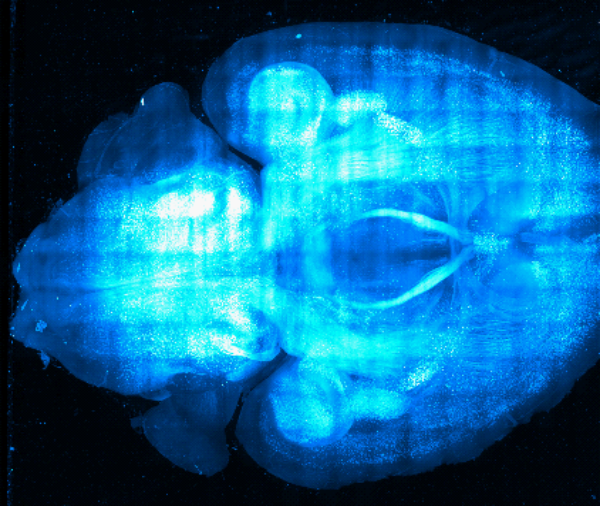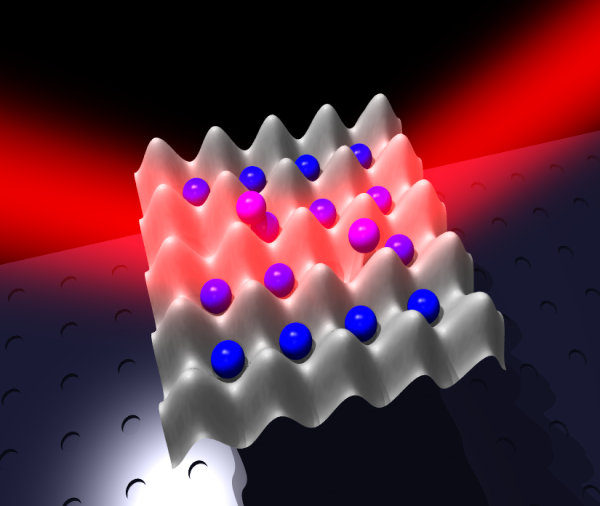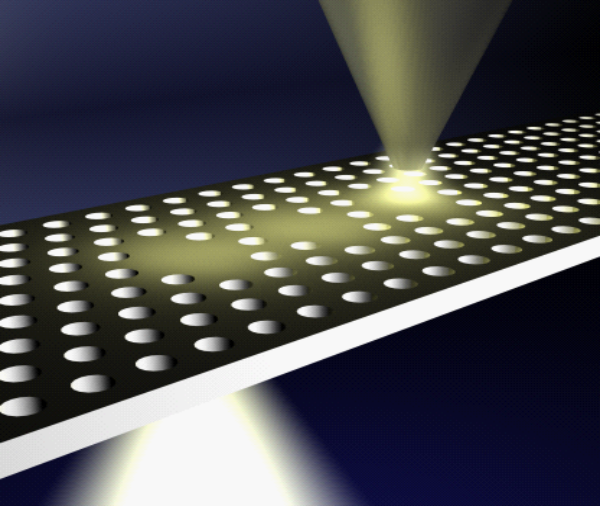Physics of Matter
Experimental research in Physics of Matter is carried out mainly in 30 research laboratories located in the main building of the Department. In addition, many researchers of the Department actively participate in the experimental activities conducted at LENS. Vibrant collaborations are also run with scientists coming from other research organizations and institutes (CNR-INO, CNR-IFAC, CNR-ISC, CNR-IOM, INFN, INRIM) working within the Department.
The research activities in Physics of Matter are organized in the following areas:

hese areas of research use laser light to study the living world. In single-molecule biophysics, we study both in-vitro and in-vivo systems by coupling high-resolution, high-speed optical manipulation techniques with single-molecule detection and imaging systems. New microscopy techniques, such as two-photon and light-sheet microscopy, are instead used to analyze the relationship between structure and function in the brain and heart. Finally, the large amount of data produced by these imaging techniques is analyzed by artificial intelligence-based algorithms.

In our labs, we use lasers and magnetic fields to produce the lowest temperatures in the Universe, only a few billionths of a degree above absolute zero.... At those temperatures, atoms stop moving and we can control them for a variety of fundamental studies and applications. We can force atoms to arrange themselves according to periodic structures to simulate the behavior of crystalline solids or other novel materials. We can use atoms as ultra-high precision sensors to probe very weak forces, such as gravity. We can study how quantum particles combine together under the action of strong interactions and how superfluidity develops. We can use these ultra-cold atoms to process information and develop new quantum technologies.
Members: F.S. Cataliotti, L. Fallani, M. Fattori, C. Fort, F. Marin, G. Modugno, N. Poli, G. Tino

This activity of research deals with the study of matter and its interaction with electromagnetic radiation and particles too, from macroscopic scale down to single molecules. The topic ranges from growth and characterization of new semiconductors to ionizing radiation sensors; from the development of both classical and quantum light emitters to the study of micro and nanostructures (ordered and disordered) for the control of emission, propagation and modulation of light (photonics). Ultrafast and neutron microscopy and spectroscopy techniques allow us to investigate properties and response to external stimuli of soft matter, thus addressing the study of materials in out-of-equilibrium states. Furthermore, magnetic molecules or nanoparticles are characterized to optimize their properties and to control electronic spins (spintronics). Applications to Physics of Materials range from photovoltaics to light emitters, from sensors to applications in Quantum Information Technologies, from the biomedical field to micro-robotics, up to high energy physics.
- Innovative semiconductors (A. Vinattieri, F. Biccari)
- DSemiconductor devices for medical physics, environment and energy (M. Bruzzi)
- Nanophotonics and quantum light emitters (M. Gurioli, F. Intonti , F. Biccari)
- Photonics in complex and reconfigurable systems (D.S. Wiersma)
- Soft matter (R. Torre, E. Guarini)
- Optics in disordered materials (S. Cavalieri, L. Fini)
- Diamond radiation sensors and emitters (S. Sciortino)
- Spectroscopic studies of magnetic nanomaterials (M. Fittipaldi)

Theoretical Condensed Matter studies analytically and numerically models of physical systems, both classical and quantum, simple or complex, with tools ranging from statistical mechanics to information theory, with interdisciplinary applications. Within a classical regime, we investigate how phenomena emerge from collective, non-linear, synchronization and self-organization effects of system components and how their dynamics can lead to phase transitions and critical phenomena (magnetism). Concerning the quantum limit, we look into the dynamics of transport and transmission of information in open quantum systems, i.e. interacting with the environment (bath), where thanks to quantum coherence we can obtain protocols for computation, sensing, communication, thermodynamics and even artificial intelligence, much more efficient than their classical analogues.
- Complex systems (D. Fanelli, R. Livi, F. Bagnoli, L. Casetti, F. Caruso)
- Magnetism and phase transitions (A. Rettori, A. Cuccoli, M. Moraldi, F. Cinti)
- Quantum information (A. Cuccoli, F. Caruso, L. Banchi)
Last update
25.01.2022
